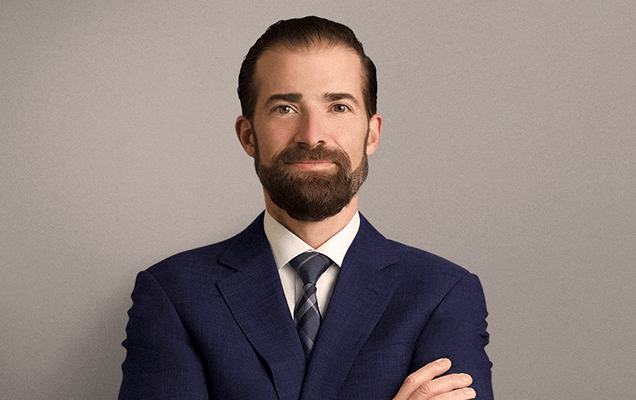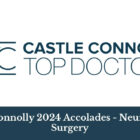Educating yourself about what to expect during your cranioplasty surgery recovery is a great way to reduce some of the stress you may be feeling during this time. Though there are different types of cranioplasty, it can be helpful to have a basic understanding of the procedure itself, as well as the recovery period. This will allow you to follow-up with your personal doctor and continue the discussion about what you can expect during your individual recovery following your cranioplasty.
The information below will help you better understand what a cranioplasty is and the different types of cranioplasty, with a focus on the recovery period. Having a clear understanding of what to expect following your cranioplasty will allow you to prepare and focus your energy on resting and regaining your energy.
Read on to learn more about your upcoming procedure and what to expect in the days and weeks following treatment.
What is a Cranioplasty?
A cranioplasty is the surgical repair of the skull due to a defect or deformity. There are different types of cranioplasty and reasons your doctor may recommend the procedure. A patient may require cranioplasty following some event, such as trauma or even a surgical procedure, that distorted the shape of the skull. This is performed to relieve pressure on the brain. The overarching goals of cranioplasty include restoring natural function, as well as enhancing esthetics.
There are both different types of cranioplasty as well as different materials available for grafting. These include both synthetic and natural materials and even materials from your own body. Some cranioplasty patients will not have any graft placed, depending on their specific circumstances. Possible graft materials include:
- A piece of bone from your own skull that has been removed and replaced
- A piece of bone from your own rib or pelvis
- Mesh or plate titanium
- Synthetic bone-like material
- Acrylic
The graft will be affixed to the surrounding skull via titanium plates and/or screws.
What to Expect During Recovery
A cranioplasty takes place within a hospital setting while you are asleep under general anesthesia. You will be completely comfortable and not feel anything during your procedure.
We are more than surgeons, we are your support system.
Immediately After Surgery
Afterward, you will spend time recovering in a post-anesthesia care unit, where your care team will monitor your heart rate, breathing and other vital signs. As you stabilize, you will be assessed for any potential side effects and will be cleared to move to your recovery room.
In the time immediately following your procedure, you will likely feel noticeably fatigued. You may need to take naps during the day, which is a normal part of the healing process and allows your body to rest. This fatigue can last for a period of weeks. Many patients also experience headaches following cranioplasty. However, these can be managed using over-the-counter or prescription medications, as needed.
The Week After Surgery
Most patients will spend one to two days recovering in the hospital following a cranioplasty. Your recovery time will depend on your personal health factors, as well as the condition being treated with the cranioplasty. Your own doctor will be the best person to give you an idea of what to anticipate following your cranioplasty.
After a week or so, you will be released to begin your recovery at home.
A Month After Surgery
You can expect to be on activity restrictions for a period of six to 12 weeks. Early in your recovery, you will be limited to activities such as carrying weight, driving and exercise. As you attend follow-up appointments and your doctor assesses your recovery, he or she will gradually ease your activity restrictions.
Because there are different types of cranioplasty used to treat various conditions, you will need to speak with your personal doctor about what to expect regarding symptom relief. Some patients will experience immediate relief from any symptoms that necessitated treatment, though this is a very personal process and will be most accurately assessed by your own doctor.
Your Personal Recovery from Cranioplasty Surgery
While self-education is a powerful way to help set your mind at ease through the treatment and recovery process, it is important to communicate with your personal doctor about what to expect during and following your specific procedure. Because there are different types of cranioplasty and conditions treated, your experience will be different than the next person’s. Your own doctor will understand your individual condition, health factors and expected outcome best and will be able to address any concerns or questions you may have.
That said, taking the time to learn as much as you can about your condition and treatment will allow you to play a more active role in your care. Continue to educate yourself as you move forward through the process. By doing so, you will find that you have increased confidence in your treatment choices and can rest easier as the date of your cranioplasty approaches, allowing you to concentrate your energy on the healing process.

About Dr. Anthony D'Ambrosio
Dr. Anthony D'Ambrosio is an accomplished neurosurgeon in North Jersey and a proud member of Neurosurgeons of New Jersey practicing primarily out of their Ridgewood office conveniently located on East Ridgewood Avenue. Dr. D’Ambrosio focuses his clinical practice on brain tumors, nervous system disorders, and facial pain disorders. He has expertise in a variety of complex surgical and radiosurgical techniques as well as minimally invasive procedures intended to successfully treat complex diseases of the brain. These techniques include micro-neurosurgery, microvascular decompression surgery and Gamma Knife radiosurgery. He's authored over 25 peer-reviewed journals and is the recipient of many awards.






